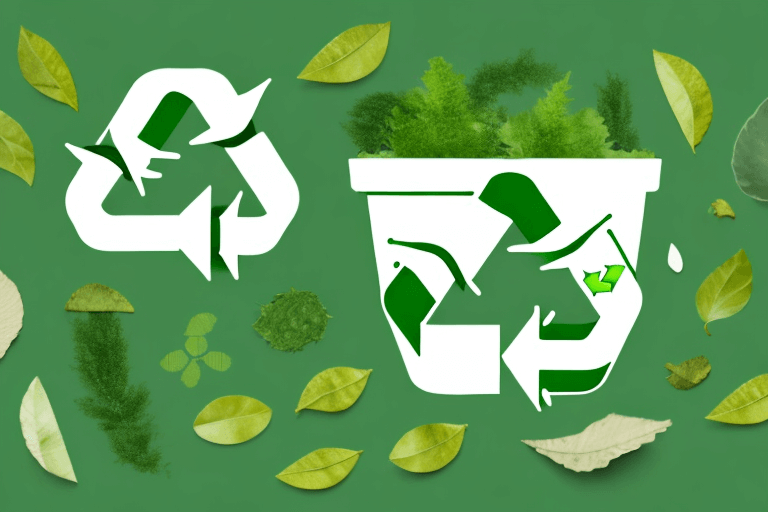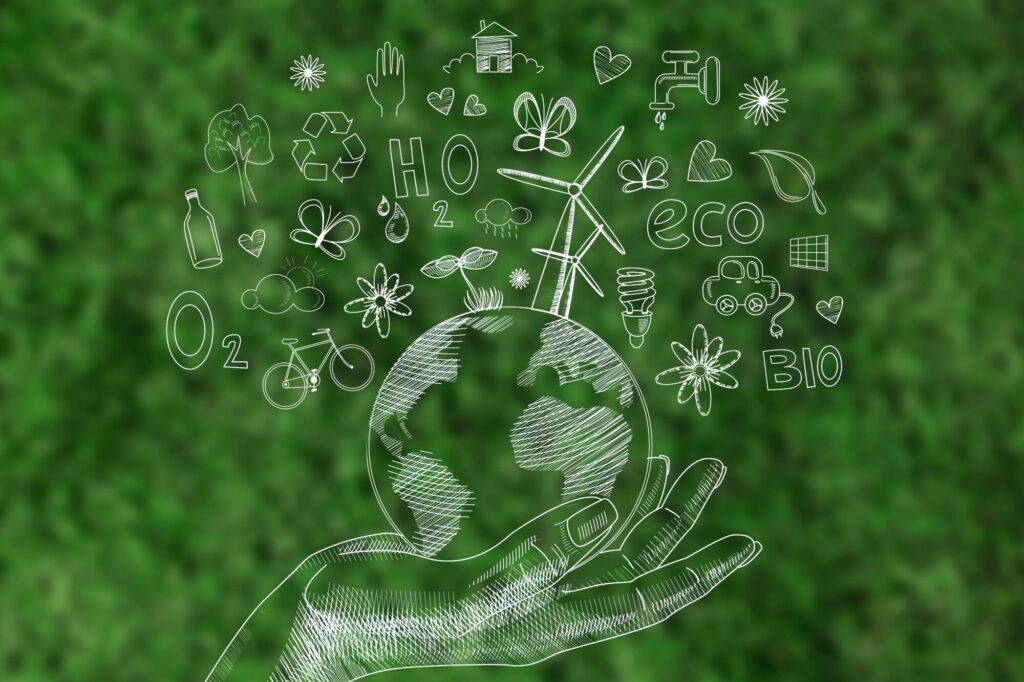The Importance of Green Waste Recycling for a Greener Environment

In today’s world, environmental sustainability has become a paramount concern. With increasing levels of pollution and dwindling natural resources, it is crucial for us to explore innovative solutions that can help mitigate the adverse impact on our planet. One such solution is green waste recycling, which plays a vital role in creating a greener environment. By diverting organic waste from landfills and using it to produce compost, green waste recycling not only reduces greenhouse gas emissions but also enriches the soil and conserves energy.
Understanding Green Waste: What It Is and Why It Matters
Before delving into the various aspects of green waste recycling, it is important to know green waste removal near me and why it holds such significance. Green waste, also known as garden waste or biodegradable waste, refers to organic materials that come from plants or other living organisms. This includes grass clippings, leaves, branches, and other garden trimmings. It is important to separate green waste from other types of waste as it has unique properties that make it suitable for recycling.
Defining Green Waste
Green waste is any organic waste that is biodegradable and comes from gardening, landscaping, or yard maintenance activities. It primarily consists of plant material such as leaves, prunings, grass, and weeds. Additionally, green waste may also include food scraps and other organic waste generated from households and commercial establishments.
When it comes to green waste, the possibilities for recycling and repurposing are endless. One common method of recycling green waste is through composting. Composting is a natural process where organic materials break down and decompose, resulting in nutrient-rich compost that can be used to improve soil quality and promote healthy plant growth. Click here green waste removal services.
Another way to recycle green waste is through mulching. Mulch is a protective layer of organic material, such as shredded leaves or wood chips, that is spread over the soil surface. Mulching helps retain moisture in the soil, suppresses weed growth, and regulates soil temperature. It also gradually breaks down, adding organic matter to the soil.

The Environmental Impact of Green Waste
The environmental impact of green waste cannot be understated. When green waste is sent to landfills, it decomposes anaerobically, releasing methane, a potent greenhouse gas. Methane is a major contributor to climate change and has a significant impact on global warming. By diverting green waste from landfills and recycling it instead, we can reduce the release of methane into the atmosphere and significantly lower our carbon footprint.
Furthermore, green waste recycling plays a crucial role in soil health and fertility. By converting green waste into compost, we can enrich the soil with organic matter, nutrients, and beneficial microorganisms. This, in turn, improves soil structure, water retention, and nutrient availability, leading to healthier and more productive plant growth.
Not only does green waste recycling benefit the environment, but it also has economic advantages. Recycling green waste reduces the amount of waste that needs to be transported to landfills, saving on transportation costs. Additionally, the compost produced from green waste can be used as a natural fertilizer, reducing the need for chemical fertilizers and saving money for farmers and gardeners.
Moreover, green waste recycling creates job opportunities in the waste management and recycling industry. The collection, processing, and distribution of green waste require a skilled workforce, contributing to local economies and promoting sustainable practices.
It is also worth noting that green waste recycling can have positive social impacts. Community composting programs, for example, can bring people together and foster a sense of environmental responsibility. These programs encourage community participation, education, and awareness about the importance of recycling and sustainable waste management.
The Process of Green Waste Recycling
Green waste recycling involves a series of steps to ensure that the organic waste is effectively transformed into compost, ready for use in agriculture, gardening, and landscaping.
Collection and Transportation of Green Waste
The first step in the recycling process is the collection and transportation of green waste. Local municipal authorities or private waste management companies usually provide designated bins or collection points for residents to dispose of their green waste. This convenient system encourages individuals to participate in recycling efforts and reduces the amount of organic waste that ends up in landfills.
Once collected, the waste is transported to recycling facilities where it undergoes further processing. Specialized trucks equipped with large containers are used to efficiently transport the green waste. These trucks are designed to minimize the release of odors and prevent leakage during transportation, ensuring a clean and safe environment for everyone involved.
The Recycling Process: From Green Waste to Compost
At the recycling facility, the green waste is carefully sorted and segregated to remove any contaminants such as plastics or metals. Trained personnel meticulously inspect the waste, manually removing any non-organic materials that may have been mistakenly included.
Once sorted, the waste undergoes a process called composting. This natural and environmentally friendly process harnesses the power of microorganisms to break down the organic waste. The waste is placed in large composting piles or bins, where it is mixed with other organic materials such as leaves, grass clippings, and food scraps. These additional materials help create the ideal conditions for decomposition.
During composting, the organic waste is broken down by microorganisms in the presence of oxygen. This process generates heat, and the temperature is carefully controlled to promote optimal decomposition. Composting facilities use advanced monitoring systems to ensure that the temperature remains within the desired range. Regular turning and mixing of the compost piles also help distribute heat evenly and provide oxygen to the microorganisms, facilitating their work.
Over time, the organic waste transforms into compost, a nutrient-rich soil amendment that can be used to improve soil fertility and structure. Compost is a valuable resource in agriculture, gardening, and landscaping. It enriches the soil with essential nutrients, enhances water retention, promotes healthy plant growth, and reduces the need for chemical fertilizers.
Once the composting process is complete, the finished product is carefully tested to ensure its quality. Samples are taken and analyzed for nutrient content, pH levels, and the presence of any harmful substances. This rigorous testing ensures that the compost meets industry standards and is safe for use.
Finally, the compost is packaged and made available for sale to the public. It can be purchased in bags or in bulk, depending on the needs of the customers. Many recycling facilities also offer educational programs and workshops to raise awareness about the benefits of green waste recycling and how to use compost effectively.
In conclusion, green waste recycling is a vital process that not only diverts organic waste from landfills but also produces a valuable resource that nourishes the soil and promotes sustainable practices in agriculture and gardening. By participating in green waste recycling, individuals contribute to a healthier environment and help create a more sustainable future.
The Benefits of Green Waste Recycling
Green waste recycling brings forth a multitude of benefits, both for the environment and the economy.
When it comes to environmental benefits, green waste recycling plays a crucial role in reducing methane emissions. Methane, as mentioned earlier, is a potent greenhouse gas that contributes to climate change. By diverting organic waste from landfills and recycling it, we are actively mitigating the impact of global warming and working towards a healthier planet.

But the benefits don’t stop there. The use of compost produced from green waste also helps reduce the need for synthetic fertilizers. Synthetic fertilizers are often resource-intensive to produce and can have detrimental effects on waterways, leading to pollution and ecological imbalances. By substituting synthetic fertilizers with compost, we can promote sustainable agriculture practices that protect both the environment and human health.
Moreover, green waste recycling brings forth economic advantages as well. By diverting organic waste from landfills, municipalities can significantly reduce waste disposal costs. Instead of paying for waste to be transported and buried in landfills, the recycled organic waste can be used to produce compost, which can be sold or used locally. This creates economic opportunities and jobs in the recycling industry, contributing to local economies.
But the benefits of green waste recycling go beyond just the environment and the economy. Recycling organic waste also helps to conserve landfill space. Landfills are finite resources, and as the population continues to grow, the demand for landfill space increases. By recycling green waste, we can extend the lifespan of existing landfills and reduce the need for new ones.
Furthermore, green waste recycling promotes a sense of community and environmental responsibility. When individuals and communities actively participate in recycling programs, they become more aware of their impact on the environment. This awareness can lead to a shift in behavior, with individuals making conscious choices to reduce waste and adopt more sustainable practices in their daily lives.
In conclusion, green waste recycling offers a wide range of benefits, from reducing methane emissions and promoting sustainable agriculture to creating economic opportunities and conserving landfill space. By embracing green waste recycling, we can make a significant positive impact on the environment, the economy, and our communities.
Challenges in Green Waste Recycling
While green waste recycling offers numerous benefits, it is important to acknowledge and address the challenges that exist in this field.
Common Obstacles in Green Waste Recycling
One of the common obstacles faced in green waste recycling is contamination. Contaminants, such as plastic bags or non-biodegradable materials, can affect the quality of the compost produced and hinder the recycling process. Therefore, education and awareness campaigns are crucial to ensure that individuals and businesses understand the importance of proper waste separation.

Overcoming Challenges in Green Waste Management
To overcome challenges in green waste management, it is essential to have a robust collection and sorting system in place. Local governments should invest in effective waste management infrastructure and engage in public outreach programs to promote proper waste separation. By working in collaboration with waste management companies and the community, these challenges can be mitigated effectively.
The Future of Green Waste Recycling
Looking ahead, there are promising developments and innovations in the field of green waste recycling that aim to further enhance its impact.
Innovations in Green Waste Recycling
Technological advancements are empowering the recycling industry to develop innovative solutions for green waste management. For instance, there are emerging processes that utilize anaerobic digestion to convert green waste into renewable energy. This technology not only produces biogas but also generates heat and electricity, making it a more sustainable option for waste management.
The Role of Policy in Promoting Green Waste Recycling
Furthermore, policy plays a crucial role in promoting and supporting green waste recycling initiatives. Governments can provide incentives for individuals and businesses to adopt sustainable waste management practices, such as tax breaks or grants. Moreover, implementing regulations that encourage waste reduction, recycling, and composting can go a long way in creating a greener and more sustainable future.
In conclusion, green waste recycling is a crucial component of achieving a greener environment. By diverting organic waste from landfills and converting it into compost, we can reduce greenhouse gas emissions, enrich the soil, and promote sustainable agricultural practices. Despite the challenges faced, innovations and supportive policies pave the way for a future where green waste recycling plays a vital role in creating a more sustainable and environmentally friendly world.
